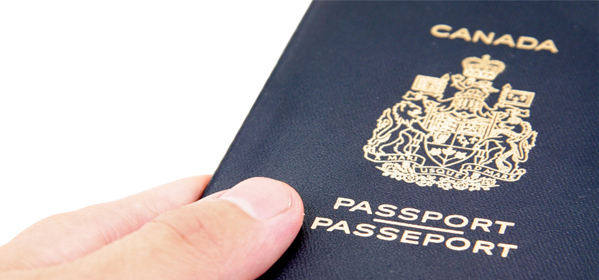Immigration to Canada through Canadian Family Class Sponsorship
To be eligible for Family Class Sponsorship, individuals who wish to immigrate to Canada must have a close relative willing to sponsor them and that relative must either be a Canadian citizen or a Canadian permanent resident.
Effective October 25, 2012, sponsored spouses or partners must now live together in a legitimate relationship with their sponsor for two years from the day they receive permanent residence status in Canada.
If you are a spouse or partner being sponsored to come to Canada, this applies to you if:
- You are being sponsored by a permanent resident or Canadian citizen
- You have been in a relationship for two years or less with your sponsor
- You have no children in common
- Your application was received on or after October 25, 2012
To qualify under Canada Family Class Sponsorship:
1. The relationship between the Sponsor and the Sponsored Person (the Family Class Immigrant) must be one of the following:
- Spouse, common-law partner, or conjugal partner; or
- Parent or grandparent; or (This program is close until November 2013)
- Dependent child; or
- Orphaned, unmarried, and under 18 years of age brother, sister, nephew, niece, or grandchild; or (This program is close until November 2013)
- Intended adopted child under 18 years of age; or
- Where a sponsor does not have any spouse, common-law partner, conjugal partner, child, parent, grandparent, sibling, uncle, aunt, nephew, or niece living in Canada, and no relative living abroad who may be sponsored under the regular categories, then they may sponsor any other relative regardless of their age (This program is close until November 2013)
2. The Sponsored Person must have a Sponsor who:
- Is a Canadian citizen or a Canadian permanent resident; and
- Meets the family class sponsorship requirements.
The Sponsor and Sponsored Person(s) must follow the appropriate Canada Family Class Immigration application process:
A Sponsored Person can apply from:
- For Sponsored Persons applying from outside Canada:
- The Canadian Sponsor must submit the Sponsorship Application to the Canadian Immigration Case Processing Centre (CPC) located in Mississauga, Ontario.
- The Sponsored Person’s Application for a Canada Immigration (Permanent Resident) Visa must also be submitted to the Canadian Immigration Case Processing Centre (CPC) in Mississauga, Ontario.
- Upon approval of the Family Class Sponsorship Application, Citizenship and Immigration Canada authorities will forward the Sponsored Person’s Permanent Resident application to the appropriate Canadian Immigration Visa Office located outside of Canada.
- The Canadian Sponsor must submit the Sponsorship Application to the Canadian Immigration Case Processing Centre located in Vegreville, Alberta.
- The Sponsored Person’s Application For Permanent Residence In Canada must also be submitted to the Canadian Immigration Case Processing Centre in Vegreville, Alberta.
- For Sponsored Persons applying from inside Canada (spouses or common-law partners and their dependent children only):
- The Canadian Sponsor must submit the Sponsorship Application to the Canadian Immigration Case Processing Centre located in Vegreville, Alberta.
- The Sponsored Person’s Application For Permanent Residence In Canada must also be submitted to the Canadian Immigration Case Processing Centre in Vegreville, Alberta.
CIC Changes the Definition of a Dependent Child
Effective August 1, 2014, the definition of a dependent child is changing for Citizenship and Immigration Canada's (CIC's) immigration programs.
The age at which a child will be considered a dependant is being reduced, from under 22 to under 19.
The exception for full-time students is also being removed. Children of applicants who are 19 or over but are financially dependent on their parents and are enrolled in full-time studies will no longer be eligible to be processed as dependent children. In all cases, a child will continue to be considered a dependant, regardless of age, if they have depended on their parents for financial support because of a mental or physical condition.
Reducing the age for dependants to under 19 in the Immigration and Refugee Protection Regulations (IRPR) will bring the IRPR in line with provincial definitions of "age of majority," which is currently evenly split between 18 and 19 across provinces and territories.
Young adults will be able to apply to come to Canada on their own merits, as foreign students or through various economic programs.
All permanent resident applications in CIC inventories before August 1, 2014 will continue to benefit from the pre-amendment definition of dependent child.
Transitional measures will allow certain applicants under multi-step permanent resident immigration programs who are already in the immigration process at the time these regulations come into force on August 1, 2014, but who have not yet submitted their application for permanent residence, to have their applications completed based on the previous definition of dependent child.
These transitional measures will apply to certain groups, including:
. Provincial Nominee Program applicants;. Applicants who have applied under one of Quebec's economic programs;
. Live-in caregivers;
. Refugees abroad and refugee claimants;
. Quebec humanitarian cases;
. Parents or grandparents whose sponsorship applications were received before November 5, 2011; and
. Privately sponsored refugees whose sponsorship applications were received before October 18, 2012.
In addition, as of August 1, 2014, to ensure that children who meet the definition of dependent child at the first stage of a multi-step permanent resident immigration program remain eligible throughout what can be a multi-year process; the child's age will be "locked in" at the first formal step of the immigration process.
The changing definition of "dependent child" has significant consequences for prospective immigrants to Canada. If one or more of their children are no longer considered a dependent child and cannot accompany them .However these children can immigrate to Canada at their own in other categories if the qualify in any of these programs.
For Sponsored persons applying to Quebec:
The same conditions apply as above, but the Sponsorship application will not be approved until it has been forwarded to Quebec and approved by Quebec immigration authorities.







